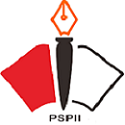IMPLEMENTASI PEMBELAJARAN PENDIDIKANA GAMA ISLAM BERWAWASAN REKONTRUKSI SOSIAL
Abstract
Islamic education is an education that refers to the values of Islam, the Qur'an and the Sunnah as a reference and source of educational material. Religious education oriented to the effective establishment of the establishment of a mental attitude of students towards the growth of religious consciousness, effectively is a problem related to emotional (psychological) associated with love, hate, sympathy antipasti, religion not only in the region but also the thought of entering the area of taste. The function of Islamic education is as (1) an effort to foster the creativity of learners on an ongoing basis (2) efforts to enrich the wealth of human culture, enrich the contents of human values and divine, and (3) efforts to set up a productive workforce that is able to anticipate the future and / or able to give shades of the working structure of the future inspired by the spirit of Islam (Muhaimin, 2003: 44).
Social reconstruction prioritize content, process and experience, it can be said to be the essence of learning social reconstruction itself is none other than giving students the freedom to avoid infertility in thinking. This is because the presence of the students are as living beings with intelligence, have conscience and always dealing with masyarakar. From here, it is very relevant when social reconstruction said memgutamakan "liberation" of students to more actively study the social problems being faced by the community. This problem as its contents, while the process can be done by dialogue and problem-solving
Keywords
Full Text:
PDFReferences
Ahmad D. Marimba,(1980) Filsafat Pendidikan Islam, Al-Ma’arif:Bandung,.cet. ke-4.
Daam Rahardjo,(1993), Intelektual Intlegensia dan Perilaku Politik Bangsa RisalahCendekiawan Muslim. Mizan: Bandung.
Depdiknas,(2002), Manajemen Peningkatan Mutu Berbasis Sekolah, Buku 5:Pembelajaran dan Pengajaran Kontekstual. Dirjen Dikdasmen dan Direktorat SLTP.
Kompas,(2003) ‘Pendidikan Sekolah Belum Menyenangkan” Jumat, 28 Februari.
Mulkan, et. al Abdullah, Amir,( 1998) .Problem Epistemologis-Metodologis Pendidikan Islam. Dalam Abdul Munir. Religius Iptek. Pustaka Pelajar: Yogyakarta.
Muhaimin, (2005), Pengembangan Kurikulum Pendidikan Agama Islam:di Sekolah, Madrasah, dan Perguruan Tinggi. Grafindo Persada:Jakarta.
Nana Syaodih Sukmadinata.(1999). Pengembangan Kurikulum: Teori dan Praktek. Rosdakarya: Bandung.
Muhaimin.(2003) Wacana Pengembangan Pendidikan Islam.Pustaka Pelajar: Surabaya.
Muhaimin. (2004).Pendidikan Agama Islam: Berwawasan Rekontruksi Sosial. UIN Press: Malang.
Noeng Muhadjir.(2000). Ilmu Pendidikan dan Perubaan Sosial: Teori Pendidikan Pelaku Sosial Kreatif. Rake Sarasin: Yogyakarta.
Nasution,(1986). Kurikulum dan Pengajaran. Umi Aksara:jakarta.
Muhaimin. dkk.(2002). Paradigma Pendidikan Islam: Upaya Mengefektifkan Pendidikan Agama di Sekolah. Rosda Karya:Bandung.
Muhaimin,(2003). Arah Baru Pengembangan Pendidikan Islam: Pemberdayaan, Pengembangan Kurikulum hingga Redifinisi Islamisasi Pengetahuan. Nuansa Cendekian: Bandung.
Suparno, Paul. dkk.(2002). Reformasi Pendidikan: Sebuah Rekontruksi. Kanisius: Jakarta.
Zakiah Daradjat,(1991). Ilmu Pendidikan Islam.,Bumi Aksara:Jakarta.
DOI: http://dx.doi.org/10.24042/atjpi.v6i2.1515
Refbacks
- There are currently no refbacks.
Copyright (c) 2017 Al-Tadzkiyyah: Jurnal Pendidikan Islam

This work is licensed under a Creative Commons Attribution 4.0 International License.

Al-Tadzkiyyah: Jurnal Pendidikan Islam is licensed under a Creative Commons Attribution 4.0 International License. Copyright © UIN Raden Intan Lampung. All rights reserved.








